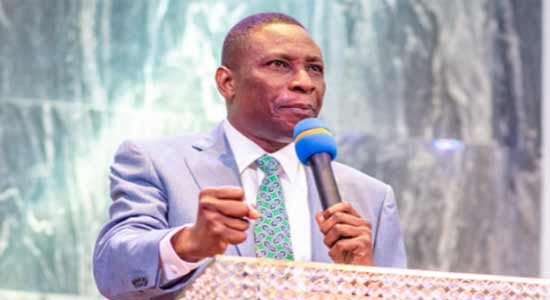
The Economic and Financial Crimes Commission (EFCC) announced on Friday that it will be reviewing the recent developments in the Malabu OPL 245 fraud case. This decision comes after the dismissal of charges against former Attorney General of the Federation and Minister of Justice, Bello Adoke, by a Federal Capital Territory High Court in Abuja.
According to EFCC spokesman, Dele Oyewale, the review will include an examination of the conduct of the prosecuting counsel, Offem Uket, and the possibility of appealing the court’s decision. The commission expressed dissatisfaction with Uket’s handling of the case and is considering a change of counsel.

Oyewale emphasized that the EFCC’s intention to review the case is not related to the recent speculation in some media outlets, which suggest compromises by parties involved in the case. He clarified that the commission has not accused any of the parties of misconduct nor made any conclusive statements regarding ongoing investigations.
The EFCC urges the public to disregard the “effusions of mischief makers” on the matter and await further actions from the commission. The Malabu OPL 245 case has been a high-profile corruption scandal in Nigeria, involving allegations of bribery and money laundering in the acquisition of an offshore oil block by multinational oil companies.

Abubakar Kutigi, a judge of the FCT high court, had upheld the no-case submission of the defendants and dismissed the charges, chiding the EFCC for wasting four years on a trial without providing evidence.
Delivering his ruling on March 28, 2024, Kutigi chastised the EFCC for filing “frivolous” charges.
Kutigi upheld the no-case submission filed by Adoke and dismissed the charges of fraud, bribery and conspiracy against the former minister on the grounds that the EFCC failed to adduce credible evidence to prove the allegations contained in the charge.
Although the judge commended the prosecution for conceding that it did not have sufficient evidence to oppose the no-case application by Adoke, he criticised the anti-graft agency for wasting four years prosecuting the case.
The judge added that the defendants ought not to have been charged in the first instance.
The judge further noted that a charge must not be filed just for the purpose of filing, adding that a frivolous charge does damage to the judicial system.
“It is argued that people can be arrested circumstantially,” the judge said.
“But every trial, more so, a criminal trial is a different ball game which must be undertaken with utmost care and attention to details, particularly, the quality of the evidence and availability of witnesses.
“It cannot be right or fair, that in this case, for example, nearly about 30 counts in the case involving forgery, the documents subject to these counts were not presented in evidence and material evidence led to situate the elements of forgery.
“If as stated by the lead investigator, PW10, that they demanded for about 37 documents from the CAC but only a few were made available, this then begs the question, why a charge will be filed involving those documents the prosecution does not have access to?
“I must therefore make the point that the whole trial process whatever its inherent imperfection is entirely evidence driven, evidence which requires quality and probative value.
“This is so whether it is at this stage of situating a prima facie, as in the present situation, or at the point of determining guilt, or otherwise of the defendants.
“Without evidence in either of the two situations, it is self evident that such a case stands compromised ab initio.
On the whole, the prosecution has failed to prove the essential elements of the offences for which the defendants were charged and accordingly, the no case submission has considerable merit and must be sustained.
“To allow this proceedings to continue having regard to the totality of evidence laid bare on the record by the prosecution is to inflict undue hardship and injustice on the defendants.
“They ought not to have stood trial in the first place if the evidence on record was all the prosecution had to offer.
“The legal consequence of a successful submission of no case to answer is that such a discharge is equivalent to an acquittal, and dismissal of the charge on the merits.
“In my final analysis, and for the avoidance of doubt, my firm decision on the basis of the provision of section 302 of the ACJA 2015 is that the evidence adduced by the prosecution on record is not sufficient to justify the continuation of this trial.
“For this reason, I hereby preclude them from entering upon their defence.
“And accordingly, I hereby dismiss, I hereby discharge the defendants of all the entirety of the charge preferred against them.”
The case was filed in 2020 but the charges were amended several times within one year.
Credit: The Nigeria Lawyer
